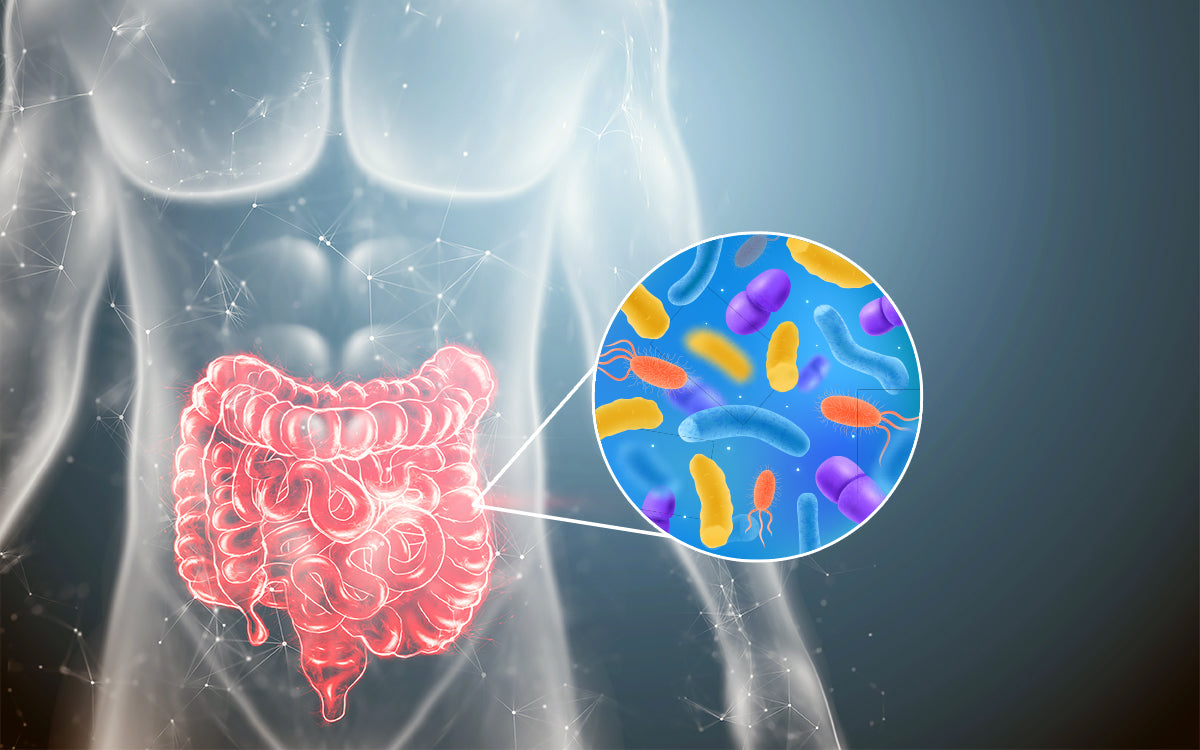
What Is Butyrate and How Can It Support Gut Health?
In recent years, gut health has become a central focus in nutrition and wellness and for good reason. The gut microbiome plays a key role in digestion, immune balance, and even metabolic health. But among the many compounds produced in the gut, one stands out for its broad impact: butyrate.
Butyrate is a short-chain fatty acid (SCFA) made by beneficial bacteria when they ferment certain types of dietary fiber . Though you won’t find butyrate listed on a nutrition label, it may quietly support several essential functions in the body, from nourishing the gut lining to supporting insulin sensitivity.
In this article, let’s explore what butyrate is, how it’s made, and why it supports your digestive health.
How is butyrate made in the gut?
Butyrate is made during a natural fermentation process that takes place in the colon. When you consume foods rich in soluble fibers or resistant starches like oats, green bananas, and beans,these nutrients travel undigested to the large intestine.
In the colon, specific bacteria such as Faecalibacterium prausnitzii, Roseburia spp., Lactococcus lactis and Clostridium butyricum ferment these fibers and convert them into butyrate known as postbiotics.
Why is butyrate important for your health?
Butyrate is essential for maintaining gut health and plays several roles throughout the body:
- Supports gut lining health: Butyrate is the preferred energy source for colon cells (colonocytes), helping maintain a strong and healthy gut barrier.
- Helps regulate immune response: It interacts with immune cells to help support a balanced immune response.
- Contributes to metabolic balance: Research suggests that butyrate may play a role in insulin sensitivity and glucose regulation.
- Acts as a signaling molecule: Butyrate may influence gene expression by interacting with enzymes that regulate DNA activity.
While human research is ongoing, studies in both animals and humans have demonstrated its promising role in digestive and metabolic support.
What are common causes of low butyrate production?
Low levels of butyrate may result from:
- A low-fiber diet like ultra-processed food that lacks prebiotic-rich foods
- Disruption of the gut microbiome
- Reduced populations of butyrate-producing bacteria due to dietary or lifestyle factors
Without enough fiber or healthy gut bacteria, the body may struggle to produce sufficient butyrate.
Which foods can help increase butyrate levels naturally?
A diet rich in fermentable fibers and resistant starches can support healthy butyrate production. Examples include:
- Oats
- Barley
- Cooked and cooled potatoes
- Lentils and beans
- Apples, pears, and bananas (especially green bananas)
- Onions, garlic, leeks, beans, and asparagus
- Inulin-containing vegetables like chicory root and Jerusalem artichoke
Dairy products such as butter contain small amounts of butyrate directly, though the majority is produced in the gut through bacterial fermentation.
Are there specific probiotics that help with butyrate production?
Yes. Certain probiotic strains are known to produce butyrate or support its production indirectly. These include:
- Clostridium butyricum
- Anaerobutyricum hallii
- Clostridium beijerinckii
- Eubacterium hallii
- Lactococcus lactis
When combined with prebiotic fibers , these strains may help enhance butyrate levels in the colon. Some supplements are formulated to deliver both the right bacterial strains and the fibers they need to thrive.
What is the takeaway on butyrate and health?
Butyrate is a vital compound produced by your gut microbiome that supports digestive, immune, and metabolic health. It works best when your gut bacteria have the right environment especially a diet rich in fiber and resistant starches.
Supporting butyrate production through diet and targeted probiotics is a practical and natural approach to promoting overall wellness.
If you are looking for a convenient way to support butyrate levels, The Gut Superblend offers a thoughtfully formulated combination of prebiotic fibers, postbiotics, and clinically studied probiotic strains known to support natural butyrate production. It’s designed to help nourish your microbiome and support long-term gut health from within.